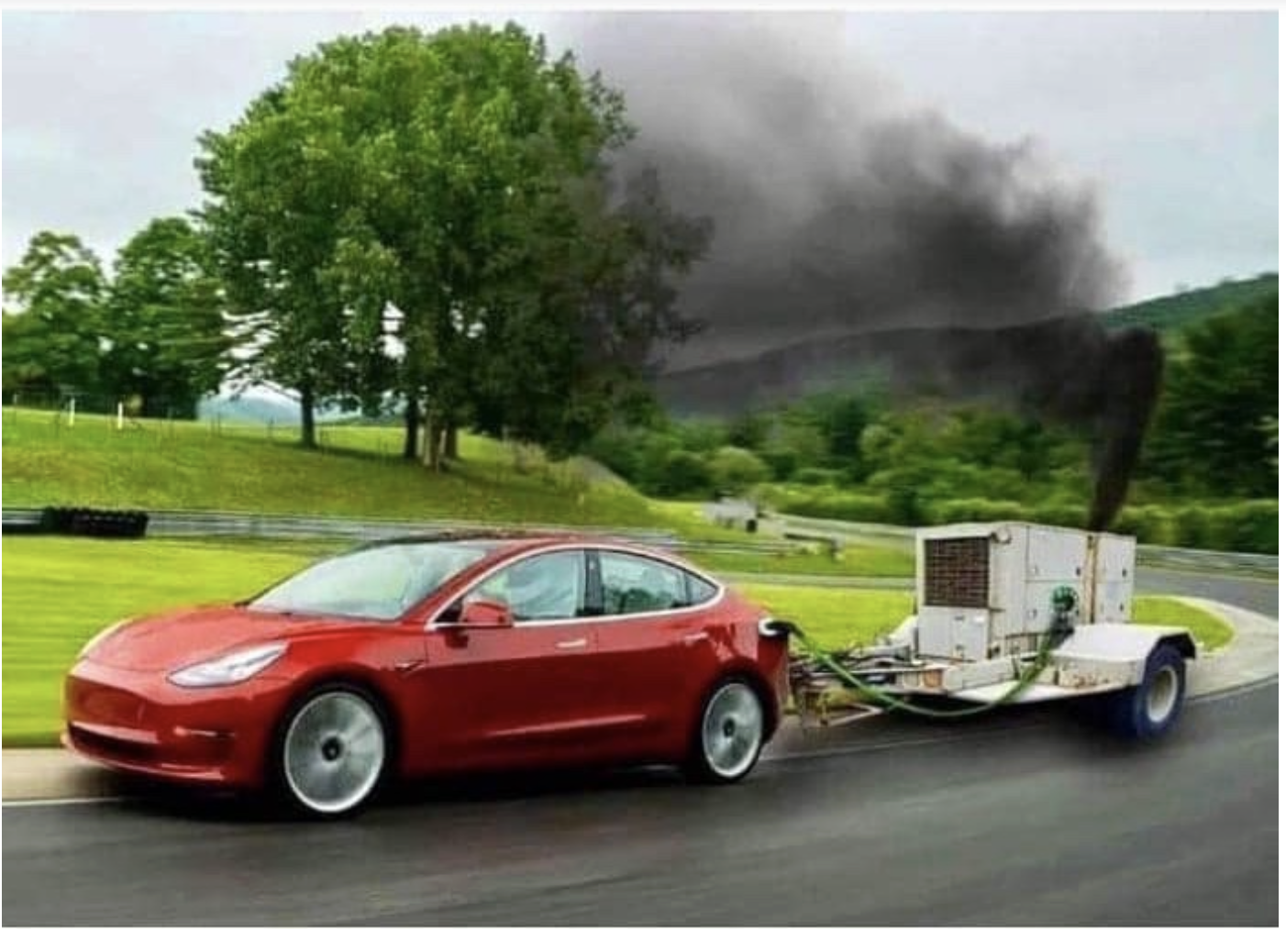No, their popularity isn't declining, it's just that their appeal is becoming (even more) selective
/About Those 'Luxury EVs'
It turns out no one wants them.
Manufacturers around the world are failing to convince their richest customers to switch to cars that run on batteries rather than gasoline — even after pouring billions of dollars into developing them https://t.co/OUvmi2rH32
— Bloomberg (@business) September 24, 2025
For what these folks in the upper tiers are willing to spend on their vehicles, they'd rather have something that zoom zooms with a throaty roar. And however sexy the EV, they are failing to convince the consumer to purchase them.
When Porsche AG prepared investors for its stock-market debut three years ago, its finance chief vowed that the company’s electric vehicles would soon out-earn its roaring gasoline counterparts.
Now, battered by waning demand for its Taycan EV and rising production costs, the German manufacturer has shelved plans for a battery-powered luxury SUV, delayed several other electric models and announced plans to add more hybrid and combustion-engine vehicles to bolster its lineup.
Porsche’s struggles are symptoms of a worrisome trend for the auto industry. Manufacturers around the world are failing to convince their richest customers to switch to cars that run on batteries rather than gasoline — even after pouring billions of dollars into developing them.
[snip]
“Many customers are petrol-heads — they want the sound and character of a V8, V12 or a high-revving V6,” said Tom Jaconelli, a director at UK-based dealer Romans International. “Car culture and community events still revolve around combustion cars, and for now EVs don’t really excite enthusiasts in the same way.”
Okay, the macho “throaty roar” set is one segment, but even the more sedate of the rich have objections to battery cars — they hate to wait, or suffer from range anxiety:
Uber British luxury brand Bentley is also rethinking its approach to the electrification of the entire line. The legendary car maker is going to 'refocus,' which is always code for 'abrupt change in plans because we may have screwed up.' Bentley wants to be able to 'take our customers with us.'
...As part of its ‘Beyond 100’ strategy, Bentley originally wanted to convert its entire model range to electric drive by 2030. This goal was already postponed by five years last year. Now, the British luxury brand has announced that it will refocus on combustion engines in the medium term.
“Electrification is still our goal, but we need to take our customers with us”
“There is a dip in demand for luxury electric vehicles, and customer demand is not yet strong enough to support an all-electric strategy. The luxury market is a lot different today than when we announced Beyond100,” Walliser told the British trade magazine.
“A dip in demand” — uh huh.
Well, Bentley, the luxury market is not a lot different today. It actually hasn't changed. It remains EV-sceptical, and super-luxury EV have been shown to have very poor residuals. Luxury means the removal of all inconvenience and irritation. pic.twitter.com/ASafMGOX9j
— Hilton Holloway (@hiltonholloway) September 23, 2025
For the German brands, this was a luxury lesson price-wise, too, at a time when the European auto manufacturers are being buffeted by Chinese competitors and pricing/manufacturing pressures alike.
Porsche pulls back from EV strategy, hitting VW with $6B loss
Porsche announced on Friday a dramatic pullback from its electric vehicle strategy, dealing a $6 billion blow to parent company Volkswagen and marking the fourth time this year the luxury automaker has cut its financial guidance. The Stuttgart-based company will delay the launch of several all-electric models and extend the production of combustion and hybrid vehicles well into the 2030s, responding to weaker-than-expected EV demand and mounting global pressures.
Slave labor is far cheaper, and Chinese EV prices reflect that
There is also the problem of EVs being remarkably easy to knock off. For years, the luxury models were all foreign brands to China, like the Porsches and Mercedes. But no one learns faster and makes better copies than the Chinese. Now, those traditional car brands have fallen away, with the Chinese imitations rocketing up the charts to supplant them in popularity and sales. This, too, is hurting the bottom line.
There’s a major shift underway in how Chinese consumers view Chinese brands.
— Kyle Chan (@kyleichan) July 9, 2025
Foreign luxury cars and other foreign brands used to be the biggest status symbols. Now we have a Chinese EV brand topping the charts for luxury car sales in China across both EVs and traditional cars.… pic.twitter.com/Lz1GhbPrPY
According to at least one survey, 96% of American EV owners also own a vehicle powered by an internal combustion engine (ICE). It’s one thing to convince more Americans to buy an expensive toy —we love toys — but it’s turning out to be a tough slog to get them to abandon their ICEs altogether. Of course, eliminating range worry will undoubtedly speed up that otherwise-dormant transition:


